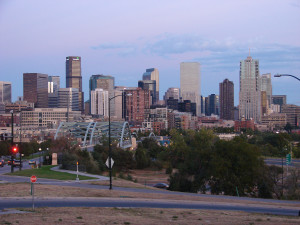Hey millennials. Pardon my penchant for old fogey music, but as The Rolling Stones said, “You can’t always get what you want, but if you try sometimes, well you might find, you get what you need.” That includes housing. So stop whining.

Yes, I get it. If you’re young and childless, it’s all the rage to live in downtown Denver. Man-buns look better, micro-brews taste better and facial piercings show off one’s individuality more where the weed shops outnumber the Starbucks. Apparently there’s some sizable prestige in telling folks which two-syllable neighborhood you’re Ubering home to after closing time — LoDo, LoHi, RiNo, NoCo, SoBo, SoCo. (Sure, it’s sounds like I’m jealous of the young with all that hair, disposable income and ability to stay awake until closing time, but who really wants that?)
Not being able to afford to live where you want isn’t a crisis. It’s part of the crap you have to deal with as an adult.
So, here’s the basic Econ 101 lesson. As more young professionals buy into the limited inventory of homes in Denver, the price of homes goes up. For some reason we want to call this simple law of supply and demand, “gentrification.” Probably because it’s easier to put people in victim classes that way. Millennials get priced out of their desired hip neighborhood with the homemade ice cream shop and might have to drive into town. And the actual poor have to move even farther out of town than the millennials and don’t have the same mobility choices. And that lack of mobility is the real crisis.
For those of us who remember the Denver economic crash during the 80s, when whole buildings went vacant, the challenges of rising property values are to be celebrated. Gentrification means the market is hot. That’s great for some people and frustrating for others, like the crash was great for buyers and devastating for sellers. By the way, don’t fall for the fib that Denver is now crash-proof.
![]() This doesn’t mean government hasn’t helped push starter homes out of reach. Condos are the gateway drug to home ownership. And Colorado’s war on this gateway drug is keeping people trapped as renters.
This doesn’t mean government hasn’t helped push starter homes out of reach. Condos are the gateway drug to home ownership. And Colorado’s war on this gateway drug is keeping people trapped as renters.
Developers don’t want to risk their capital on building new condos when one mistake in construction can wipe out their entire investment. Our state has some of the worst laws in the nation for suing on “Construction Defects.” English: it’s so easy to sue condo developers out of existence that they simply don’t build many condos anymore.
Year after year the state legislature does nothing to remedy this costly problem, with this last session as an exception. They did almost nothing.
Growth control also hurts. The median home price in Boulder, poster child for urban growth boundaries, growth limits and zany building regulations, is now over $1 million dollars, up from around $300,000 just 17 years ago. And in 2001, to pacify threats of anti-growth citizen initiatives, the legislature passed heavy regulations on new housing developments, requiring many of them to create their own governmental special districts and massive internal bureaucracies, think pricey HOA hell, all which costs more to the home buyer.
Those who already own a home love all this protectionism. It artificially inflates our home values, giving us more to borrow against, and a bigger payday when we sell. So homeowners won’t advocate for repealing these costly policies.
When Henry Ford democratized transportation it freed families from being tethered to their jobs and allowed them to live in better, more affordable places.
Want to give people more housing choices? Give them more mobility. Make it easier to reach what they can afford.
This doesn’t mean spending even more on RTD, which spends many fold more than we do on roads, yet only carries 2 percent of the daily commutes. It doesn’t mean closing more car lanes so only bikes can ride on them.
It means fixing our damn roads to ease congestion, and helping transit dependent people with cash, not bus passes, so they can have the mobility choices millennials do.
Jon Caldara is president of the Independence Institute, a free market think tank in Denver.


